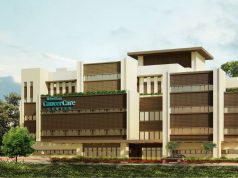MANILA – The Philippine Board of Investments has approved the P48.5-billion Cavite-Laguna Expressway (CALAX) project of MPCALA Holdings, Inc. (MHI), qualifying as an Infrastructure of Public-Private Partnership (PPP) Project under the Preferred Activities of the current Investment Priorities Plan (IPP).
Trade Undersecretary and BOI Managing Head Ceferino Rodolfo highlighted the project’s impact in addressing the infrastructure requirement of both the business locators and the general commuting public in the Cavite and Laguna areas.
“CALAX will greatly ease the movement of goods and services in the area, further boosting the economic activities in the Southern Tagalog region and create jobs,” said Undersecretary Rodolfo, adding that the infrastructure development complements the agency’s strategy to further disperse economic activities across the regions.
The BOI, in its 2017 Investment Priorities Plan (IPP)—a list of priority investment activities that may be given incentives, encourages local and foreign investors to locate their investment projects in the urban and least development areas. With the theme “Scaling Up and Dispersing Opportunities,” the 2017 IPP brings forth significant additions and changes, following the President’s Zero+10-Point Socio Economic Agenda, the aspirations embodied in AmBisyonNatin 2040, and the Philippine Development Plan 2017-2022.
Broadly, these changes include further emphasis on innovation-driven and job-generating businesses; inclusive business for agribusiness and tourism; broadened coverage of manufacturing; information technology (IT) and IT-enabled services for the domestic market and telecommunications services for new market players; environment and climate change-related projects; LGU-initiated PPP projects; drug rehabilitation centers; state-of-the-art engineering, procurement and construction (EPC) services; and the lifting of geographical restrictions for most agriculture and tourist accommodation facilities.
Apart from the economic benefits, the CALAX project is also seen to provide faster, safer, and comfortable route for people travelling between the Bacoor and Kawit, Cavite areas and the Laguna and South Luzon Expressway (SLEX) areas.
The provinces of Cavite and Laguna are rapidly growing industrial and commercial hubs in the Southern Tagalog Region. Traffic congestion is currently a problem in the region’s major road networks such as the Governor’s Drive, Aguinaldo Highway, and Sta. Rosa-Tagaytay Road.
Commercial operations of CALAX are scheduled to be operational by July 2020 with a total of 280 personnel manning the project.
The CALAX project is one of the priority projects under the PPP being implemented by the Department of Public Works and Highways (DPWH). The DPWH obtained approval of the National Economic and Development Authority in 2015 to develop and implement the project under the variant of Build-Transfer-Operate contractual arrangement in compliance with Republic Act No. 6957 known as the BOT Law.
MHI, owned by the Metro Pacific Group of businessman Manuel V. Pangilinan was selected as the winning bidder to put up the CALAX project and the right to collect fees over a 35-year concession period. CALAX is considered as a new PPP tollway infrastructure project under the Concession Agreement between the DPWH and MHI.
The project is a 44.69-km, 4-lane divided expressway that will link Cavitex to SLEx. It will traverse the provinces of Cavite and Laguna and will connect the SLEx via the Mamplasan Interchange. CALAX will have eight interchanges access along its entire length. It is divided into two segments, the 26.48 km Cavite segment and the 18.15 km Laguna segment. The Cavite segment will start in Tirona Highway, Kawit Cavite and end in Aguinaldo Highway, Silang, Cavite. The Laguna segment will start in Aguinaldo Highway, Silang, Cavite Interchange up to the Greenfield Property in Binan, Laguna.
The PPP Center has endorsed the CALAX project for BOI approval as it is one of the priority projects under the PPP program. The PPP Center certified that no government or subsidy was extended to MHI.









